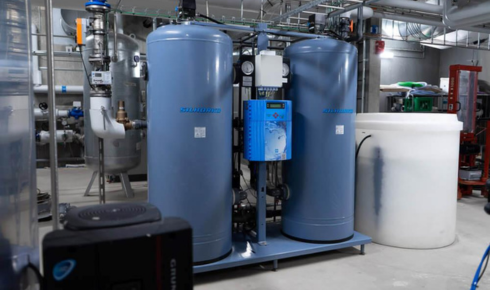- For what reason is psychological wellness significant in the working environment?
Psychological wellness is vital in the working environment since it straightforwardly influences representative prosperity, work fulfillment, and efficiency. Poor psychological wellness can prompt expanded non-attendance, lower execution, and higher turnover rates. By encouraging an intellectually solid working environment, associations can further develop resolve, commitment, and generally speaking business results.
- What are a few signs that representatives might be battling with their emotional wellness?
Normal indications of emotional well-being battles in the working environment include:
Diminished efficiency or missed cutoff times
Expanded non-attendance or lateness
Withdrawal from group exercises or correspondence
Expanded peevishness, temperament swings, or close to home explosions
Actual side effects like weariness, migraines, or changes in rest designs Perceiving these signs early permits managers to offer help and assets before issues heighten.
- What are a few procedures to advance psychological well-being in the working environment?
Methodologies include:
Making a strong culture: Empower open correspondence and lessen shame around psychological well-being.
Offering worker help programs (EAPs): Give secret guiding and support administrations.
Cultivating balance between serious and fun activities: Support adaptable working hours or remote work choices.
Giving emotional well-being preparing: Teach workers and directors on perceiving indications of psychological wellness difficulties and how to answer.
Executing wellbeing programs: Offer assets, for example, contemplation, work out schedules, or stress the executives studios.
- How might bosses lessen pressure in the work environment?
Businesses can lessen pressure by:
Setting sensible assumptions: Guarantee that responsibility and cutoff times are reasonable.
Advancing using time productively: Give preparing on prioritization and time usage abilities.
Empowering breaks: Guarantee workers enjoy customary reprieves to rest and re-energize.
Offering adaptability: Permit representatives to deal with their timetables or work remotely when vital.
Establishing a good workplace: Encourage a strong and comprehensive culture where representatives feel esteemed.
- How might directors uphold representatives’ psychological well-being?
Chiefs can uphold workers by:
Being receptive: Establish a climate where representatives feel happy with examining emotional wellness concerns.
Giving standard criticism: Offer valuable input and perceive achievements to assemble representative certainty.
Advancing balance between fun and serious activities: Urge representatives to get some much needed rest when required and try not to over-burden them with work.
Offering emotional wellness assets: Guarantee workers know about accessible help administrations like advising or treatment.
Showing others how its done: Directors ought to exhibit sound ways of behaving, like enjoying reprieves and focusing on taking care of oneself.
- Which job does correspondence play in advancing psychological wellness at work?
Transparent correspondence is crucial for psychological wellness in the work environment. Businesses ought to cultivate a climate where representatives feel open to examining psychological well-being worries unafraid of judgment. Customary registrations, straightforward criticism, and a steady climate can assist representatives with feeling appreciated and esteemed.
- What might associations do for representatives deal with their psychological well-being beyond work?
Associations can uphold representatives’ psychological well-being beyond work by:
Giving assets to psychological well-being: Offer admittance to directing, health projects, or taking care of oneself apparatuses.
Empowering solid propensities: Backing drives that energize active work, appropriate sustenance, and stress the executives beyond work.
Advancing downtime: Guarantee workers have sufficient get-away or individual days to re-energize and stay balanced.
Support for providing care liabilities: Offer help for representatives who are overseeing providing care obligations at home.
- What are the advantages of working on emotional well-being in the work environment?
The advantages of focusing on emotional well-being in the working environment include:
Expanded representative efficiency and execution
Further developed assurance and occupation fulfillment
Decreased non-appearance and turnover
More significant levels of commitment and imagination
Better group joint effort and correspondence These results benefit workers as well as improve the general outcome of the association.
- How might organizations make an intellectually sound working environment culture?
Organizations can make an intellectually solid culture by:
Driving with sympathy: Urge pioneers to be empathetic and understanding about psychological well-being issues.
Cultivating inclusivity: Guarantee that all workers feel esteemed, regarded, and included.
Advancing psychological well-being mindfulness: Routinely give training and assets on emotional well-being points.
Perceiving pressure and burnout: Execute strategies that help recognize and address burnout and stress right off the bat.
Making places of refuge: Permit representatives to look for help unafraid of shame or repercussions.
- How should representatives respond assuming they feel overpowered or pushed working?
Workers ought to:
Connect for help: Talk with their administrator or HR to examine responsibility or psychological well-being concerns.
Use accessible assets: Use worker help programs (EAPs) or advising administrations.
Enjoy reprieves: Step away from work while feeling overpowered, go for short strolls, or practice unwinding methods.
Put down stopping points: Guarantee that individual time is regarded and abstain from workaholic behavior.
Look for proficient assistance: If vital, counsel an emotional wellness proficient for extra help.














